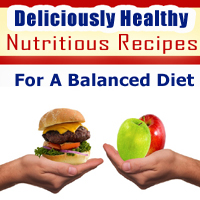


A Recipe For Health And Sustainability
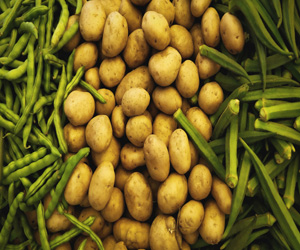
Organic cooking is more than just a culinary trend; it's a conscious and sustainable way of preparing food that aligns with the principles of organic farming. This practice emphasizes the use of organically grown and sustainably produced ingredients to create flavorful, wholesome meals. In the world of food, organic cooking is gaining prominence for its numerous health benefits and the positive impact it has on the environment.
The Essence Of Organic Cooking: At its core, organic cooking revolves around the use of organic ingredients - fruits, vegetables, grains, meats, and dairy products that are produced without the use of synthetic pesticides, herbicides, and genetically modified organisms (GMOs). Organic farming practices are committed to sustainable agriculture that fosters soil health, conserves water, and minimizes environmental damage.
Health Benefits: Organic cooking prioritizes the quality and nutritional value of ingredients. Here are some key health benefits associated with organic cooking:
Nutrient-Rich Ingredients: Organically grown foods tend to be richer in essential nutrients, such as vitamins, minerals, and antioxidants. This means that meals prepared with organic ingredients can provide a more substantial nutritional punch.
Avoiding Harmful Chemicals: Organic cooking eliminates the risk of ingesting synthetic pesticides and herbicides commonly found on conventionally grown produce. These chemicals have been linked to various health issues, making organic options a healthier choice.
Reduced Exposure To Antibiotics And Hormones: Organic meats and dairy products come from animals that are raised without antibiotics and synthetic hormones. By consuming organic animal products, you reduce your exposure to these potentially harmful substances.
Better For Allergies: Organic foods have been reported to be less likely to trigger allergies due to their lack of synthetic chemicals and genetically modified ingredients.
Sustainability And The Environment: Organic cooking is not only beneficial for your health but also for the planet. Sustainable farming practices that go hand-in-hand with organic cooking have several environmental advantages:
Soil Health: Organic farming promotes healthier soil by avoiding the use of synthetic chemicals that can degrade the quality of the land. This leads to improved soil fertility and greater resistance to erosion.
Reduced Environmental Impact: Organic farming minimizes the release of harmful chemicals and fertilizers into the environment. This helps protect water quality and supports local ecosystems.
Preserving Biodiversity: Organic farms tend to have higher levels of biodiversity, as they often grow a wider variety of crops and rely on natural pest control methods.
Climate Change Mitigation: Organic farming practices, such as crop rotation and cover cropping, sequester carbon and reduce greenhouse gas emissions, making them more climate-friendly.
Tips For Organic Cooking:
To embrace organic cooking in your kitchen, consider the following tips:
Shop Local: Purchase organic ingredients from local farmers' markets or join a Community-Supported Agriculture (CSA) program to access fresh, seasonal organic produce.
Read Labels: Look for the USDA Organic label on packaged products to ensure they meet organic standards.
Grow Your Own: If possible, start a small organic garden in your backyard or even on your balcony to have fresh, homegrown ingredients at your disposal.
Plan Your Meals: Organize your meals around seasonal organic produce to enjoy the freshest ingredients.
Organic cooking is a culinary journey that celebrates health and sustainability. It prioritizes quality, nutrition, and environmental responsibility, making it an excellent choice for individuals who are passionate about nourishing themselves while protecting the planet. By embracing organic ingredients and sustainable cooking practices, you can create delicious meals that are not only good for your health but also for the world we all share.
A Path To Optimal Health
 The Role Of Vitamins
The Role Of Vitamins
Vitamins are involved in a multitude of physiological processes, including energy production, immune system function, and the maintenance of healthy skin, eyes, and bones. They act as cofactors in enzymatic reactions that are crucial for life. Each vitamin has specific roles and functions, and a deficiency in any of them can lead to various health problems.
Fat-Soluble vs. Water-Soluble Vitamins
Vitamins can be categorized into two groups: fat-soluble and water-soluble. Fat-soluble vitamins (A, D, E, and K) are stored in the body's fat tissues and liver. Excess amounts can accumulate, so it's essential to monitor their intake. Water-soluble vitamins (C and the B-complex vitamins, including B1, B2, B3, B5, B6, B7, B9, and B12) are not stored in the body, so regular intake is necessary to maintain optimal health.
The Importance Of A Balanced Diet
A balanced diet that includes a wide variety of foods is the most reliable way to ensure adequate vitamin intake. Fruits, vegetables, whole grains, lean proteins, and healthy fats should all be part of your daily menu. Eating a rainbow of fruits and vegetables is an excellent strategy to obtain a diverse range of vitamins and minerals.
Embark On Your Culinary Journey
 2. Cost-Effective: Eating out or ordering takeout can be expensive. Cooking at home is often more budget-friendly and cost-effective in the long run.
2. Cost-Effective: Eating out or ordering takeout can be expensive. Cooking at home is often more budget-friendly and cost-effective in the long run.
3. Empowerment: Learning to cook empowers you to take charge of your diet and make informed food choices. It's a life skill that fosters independence.
4. Culinary Exploration: Cooking introduces you to different cuisines, ingredients, and flavors. It's a journey of exploration and creativity.
5. Sense Of Accomplishment: Preparing a meal from scratch and sharing it with loved ones can be immensely satisfying. It's a source of pride and accomplishment.
Elevate Your Culinary Game With Clever Shortcuts
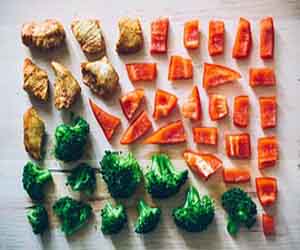 4. Efficiency: Cooking hacks streamline the cooking process, making it more efficient. They allow you to multitask, so you're not chained to the stove, and they minimize the number of pots and pans you need to wash.
4. Efficiency: Cooking hacks streamline the cooking process, making it more efficient. They allow you to multitask, so you're not chained to the stove, and they minimize the number of pots and pans you need to wash.
5. Creativity: Hacks encourage experimentation and creativity in the kitchen. They open up new possibilities and inspire you to try new techniques and flavors.
Must-Know Cooking Hacks
Here are a few essential cooking hacks that can make your time in the kitchen more efficient and enjoyable:
1. Knife Skills: Mastering basic knife skills can save time and improve your safety in the kitchen. Learn to chop, dice, and slice like a pro to speed up meal prep.
A Journey To Culinary Excellence
 2. Baking: Similar to roasting, baking takes place in an enclosed oven. This method is perfect for bread, pastries, and casseroles, allowing even cooking and browning.
2. Baking: Similar to roasting, baking takes place in an enclosed oven. This method is perfect for bread, pastries, and casseroles, allowing even cooking and browning.
3. Grilling: Grilling imparts a smoky flavor and beautiful grill marks on food. It's a favorite for outdoor cooking, especially for items like burgers, steaks, vegetables, and seafood.
4. Broiling: Broiling places food directly beneath the oven's heating element. It's a quick way to achieve a browned and crispy top layer, making it ideal for cheese-topped dishes and meats.
Moist Heat Cooking Methods
1. Boiling: Boiling involves immersing food in boiling water. This method is suitable for pasta, rice, vegetables, and hardier foods. It's important to note cooking times to avoid overcooking.
2. Steaming: Steaming is a gentle method that cooks food over, not in, boiling water. It preserves nutrients and flavors, making it an excellent choice for vegetables, seafood, and dumplings.
3. Poaching: Poaching involves gently simmering food in a flavorful liquid, typically at a lower temperature than boiling. This method is perfect for cooking delicate items like eggs, fish, and chicken.



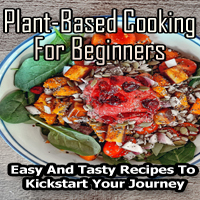

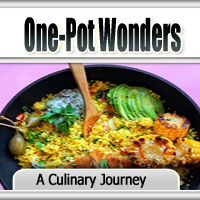
Nourishing Your Body And Mind
 Nutrient Density
Nutrient Density
Whole foods are rich in nutrients, making them an essential part of a healthy diet. They provide an abundance of vitamins, minerals, and antioxidants that nourish the body, strengthen the immune system, and reduce the risk of chronic diseases. Because they are dense in nutrients, they help you meet your daily nutritional requirements with fewer calories, which can support weight management and overall health.
Dietary Fiber
Whole foods, particularly fruits, vegetables, and whole grains, are excellent sources of dietary fiber. Fiber is crucial for digestive health, as it promotes regular bowel movements, prevents constipation, and supports a healthy gut microbiome. Additionally, fiber helps regulate blood sugar levels, reducing the risk of diabetes, and promotes a feeling of fullness, aiding in weight control.
Natural Energy Sources
Whole foods provide a steady source of energy. They release their nutrients more slowly into the bloodstream, preventing the rapid spikes and crashes in blood sugar associated with processed foods. This steadier energy flow helps maintain alertness, focus, and sustained physical and mental endurance throughout the day.
Transforming Your Life For The Better
 Lifestyle change is a concept that holds the potential to redefine our well-being, relationships, and overall quality of life. It involves a deliberate and conscious shift in one's habits, behaviors, and choices, often with the aim of improving health, happiness, and fulfillment. Whether you're seeking to overcome challenges, enhance your personal development, or simply find a better path in life, lifestyle change is a powerful tool to help you accomplish these goals.
Lifestyle change is a concept that holds the potential to redefine our well-being, relationships, and overall quality of life. It involves a deliberate and conscious shift in one's habits, behaviors, and choices, often with the aim of improving health, happiness, and fulfillment. Whether you're seeking to overcome challenges, enhance your personal development, or simply find a better path in life, lifestyle change is a powerful tool to help you accomplish these goals.
The Catalyst For Change
Lifestyle change often begins with a catalyst, a moment of realization that prompts you to reevaluate your current situation. It could be a health scare, a feeling of stagnation, or a desire for greater self-fulfillment. Whatever the trigger, it serves as a powerful motivation to embark on a journey of transformation.
Setting Clear Goals
The first step in making a lifestyle change is setting clear and realistic goals. Whether your focus is on health, career, relationships, or personal growth, defining what you want to achieve is essential. These goals provide a sense of direction and purpose, making it easier to stay on course during the change process.